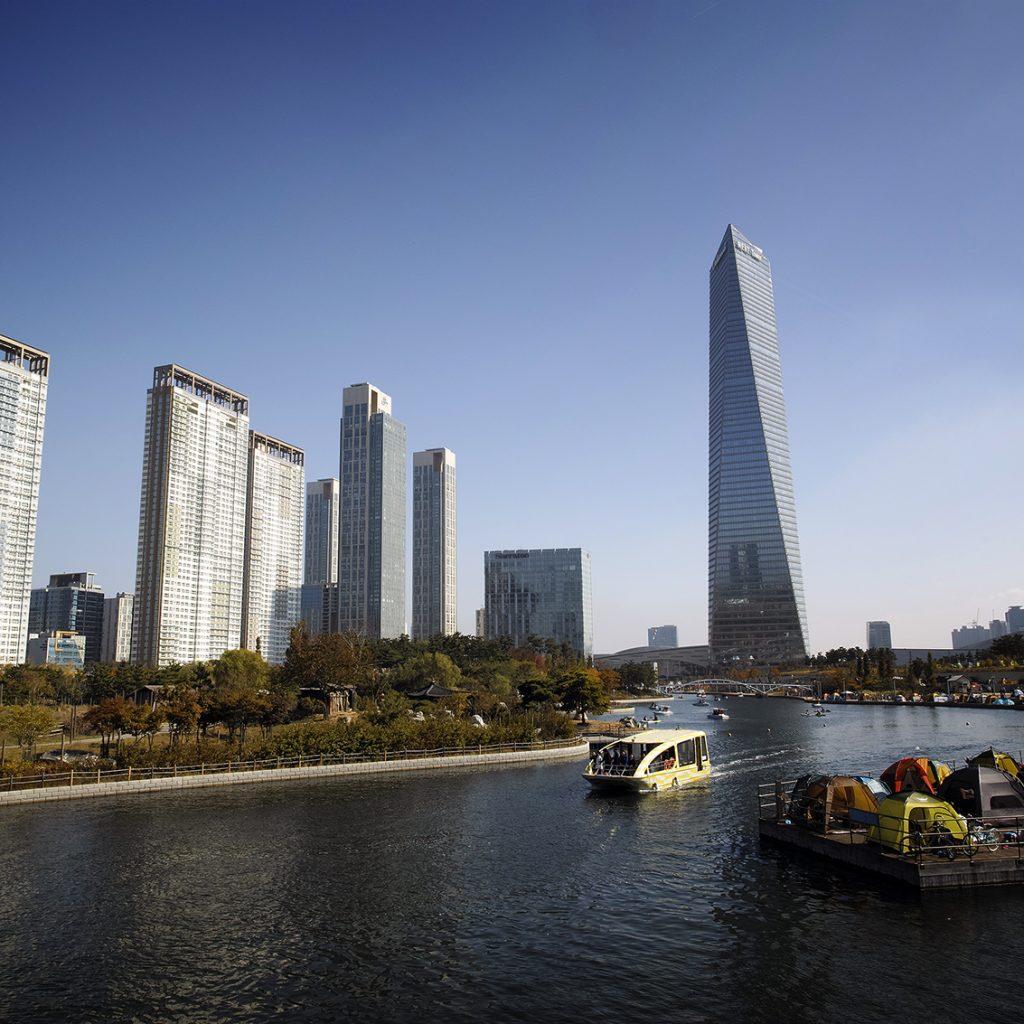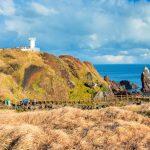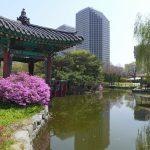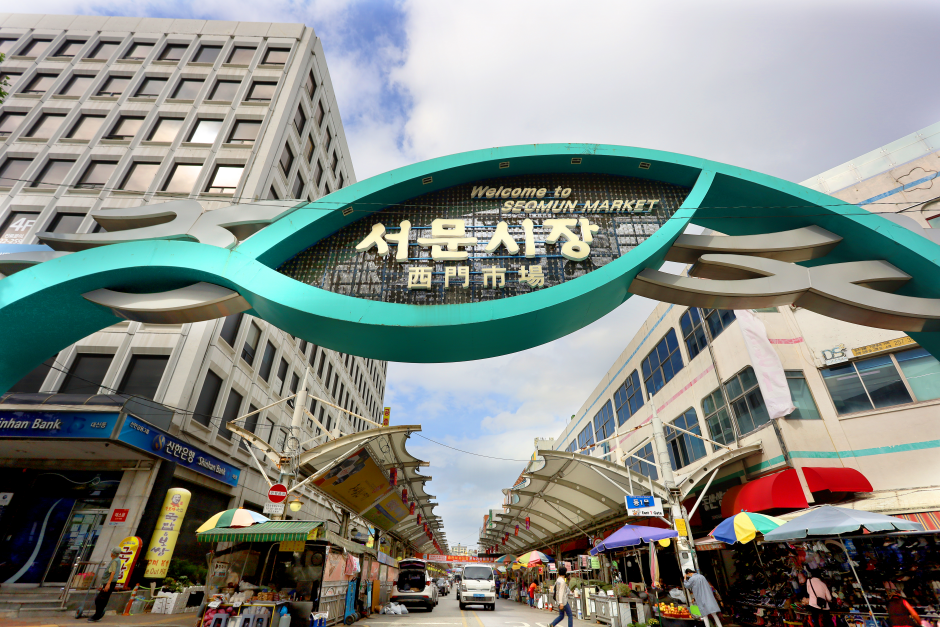Situated on the northwestern coast of South Korea, Incheon is a vibrant and bustling city known for its international airport and bustling port. Serving as the main gateway to the country, Incheon offers a mix of modernity and cultural charm, making it a fascinating destination for travelers. From its futuristic architecture and thriving business district to its rich history, diverse culinary scene, and beautiful islands, Incheon has something to offer every visitor.
History & Culture: Incheon has a rich history that dates back centuries. The city played a significant role in Korea’s modernization and international trade during the late 19th and early 20th centuries. Incheon is best known for the Incheon Landing Operation during the Korean War, which turned the tide of the conflict. The city is home to several historical sites and landmarks, such as Jayu Park, where the statue of General Douglas MacArthur stands as a symbol of Korea’s liberation. Incheon’s cultural scene is vibrant, with numerous festivals, art exhibitions, and performances throughout the year, showcasing both traditional and contemporary Korean culture.
Weather and Best Time to Visit: Incheon has a temperate climate with distinct seasons. Spring (April to June) and autumn (September to November) are considered the best times to visit when the weather is mild and pleasant. These seasons also offer opportunities to enjoy the cherry blossoms in spring and the colorful foliage in autumn. Summers (June to August) are warm and humid, while winters (December to February) can be cold with occasional snowfall. It’s worth noting that Incheon’s proximity to the coast can make the weather slightly cooler and breezier compared to inland areas.
How to Reach: Incheon is well-connected internationally and domestically. Incheon International Airport, one of the world’s busiest airports, serves as a major transportation hub. The airport offers flights to and from major cities worldwide, making it easily accessible for international travelers. From the airport, travelers can reach downtown Incheon by express train, airport limousine buses, or taxis. Incheon is also connected to Seoul and other cities in South Korea by an extensive network of trains and buses.
Local Transportation Available: Incheon has a well-developed transportation system that makes it convenient for visitors to explore the city and its surroundings. The Incheon Metro, with several lines, provides efficient transportation within the city and connects to neighboring areas. Buses are another popular mode of transportation, offering extensive coverage throughout the city. Taxis are readily available and can be hailed or booked through mobile apps. Incheon also has bike-sharing services, which provide an eco-friendly way to get around certain areas.
Must-Visit Tourist Attractions:
- Incheon Chinatown: Explore the vibrant streets of Korea’s largest Chinatown, known for its Chinese architecture, delicious cuisine, and cultural festivities.
- Incheon Grand Park: A sprawling park with beautiful gardens, walking trails, and a zoo, perfect for outdoor activities and relaxation.
- Wolmido Island: A popular entertainment destination with amusement parks, a waterfront park, restaurants, and street food stalls.
- Songdo Central Park: A picturesque urban park with a man-made seawater lake, walking paths, and sculptures, offering a tranquil escape.
- Incheon Bridge: Marvel at the impressive engineering of this cable-stayed bridge, which connects Incheon to Yeongjong Island.
- Eurwangni Beach: A scenic beach known for its sandy shores, clear waters, and water sports activities.
- Sinpo International Market: Experience the vibrant atmosphere of this traditional market, where you can find fresh produce, street food, and local products.
- Freedom Park: A historically significant park dedicated to the Korean independence movement, featuring monuments and exhibitions.
Must-Do Activities:
- Visit the Korean Traditional Cultural Experience Center and participate in traditional craft workshops, such as pottery or hanbok (Korean traditional clothing) making.
- Take a leisurely stroll along Incheon’s waterfront promenades, such as Songdo Hanok Village or Sorae Pogu (Fishery Market), and enjoy the scenic views.
- Explore the unique museums in Incheon, such as the Incheon Landing Operation Memorial Hall and the Korean Emigration History Museum.
- Try your luck at Paradise City, a multi-purpose complex offering a casino, shopping, entertainment, and dining options.
- Take a ferry or boat tour to explore the scenic islands around Incheon, such as Ganghwa Island or Muuido Island.
- Relax and rejuvenate at one of Incheon’s jjimjilbangs (Korean bathhouses), where you can enjoy sauna facilities and traditional Korean spa treatments.
- Watch a performance at the Incheon Culture & Arts Center or catch a concert at the Incheon Munhak Stadium.
Fun & Entertainment Parks:
- Wolmi Theme Park: A retro-style amusement park with thrilling rides, a Ferris wheel, and an observatory offering panoramic views of Incheon.
- Triple Street: A shopping complex that combines retail outlets, restaurants, and entertainment facilities, including a cinema and a bowling alley.
Popular Food and Drinks:
- Jajangmyeon: A popular Korean-Chinese noodle dish with black bean sauce, typically enjoyed in Incheon’s Chinatown.
- Dakgangjeong: Sweet and crispy fried chicken, a beloved Korean dish that can be found in various restaurants and street food stalls in Incheon.
- Sannakji: Raw octopus that is sliced into small pieces and served fresh, providing a unique and thrilling culinary experience.
- Haejangguk: A hearty and spicy soup known as a hangover cure, made with beef broth and various ingredients.
- Incheon’s Fresh Seafood: As a coastal city, Incheon offers an abundance of fresh seafood, including raw fish, grilled shellfish, and steamed crabs.
Restaurants and Bars:
- Jayu Park Street: A lively street in Incheon’s Chinatown lined with restaurants and cafes, serving a variety of Chinese and Korean dishes.
- Songdo Central Park Street: An area near Songdo Central Park that offers a range of dining options, from Korean barbecue to international cuisines.
- Incheon Fish Market: Enjoy fresh seafood dishes at one of the market’s many seafood restaurants, where you can choose your own ingredients.
Nightlife and Nightclubs: Incheon offers a vibrant nightlife scene with a variety of bars, clubs, and entertainment venues. Bupyeong Station and Guwol-dong are popular areas for nightlife, offering a range of establishments catering to different tastes and preferences.
Shopping Centers and Markets:
- Sinpo International Market: A bustling traditional market where you can find a wide range of products, from fresh produce to clothing and accessories.
- Lotte Department Store: A well-known department store chain offering a wide selection of luxury brands, cosmetics, and fashion items.
- NC Cube Canal Walk: A shopping complex located along the waterfront, featuring trendy boutiques, restaurants, and cafes.
Museums and Educational Institutions:
- Incheon Landing Operation Memorial Hall: A museum dedicated to the historic Incheon Landing Operation during the Korean War, showcasing artifacts, photographs, and exhibits.
- Incheon National University: A prominent educational institution in Incheon, known for its academic excellence and beautiful campus.
Safety for Tourists and Do’s & Don’ts: Incheon is generally a safe city for tourists. However, it’s advisable to take basic precautions, such as keeping an eye on your belongings, using trusted transportation services, and being aware of your surroundings, particularly in crowded areas. It’s recommended to have travel insurance and to follow local laws and regulations.

Environment and Sustainable Tourism: Incheon is committed to sustainable tourism and environmental preservation. The city promotes eco-friendly practices, such as waste management and recycling programs. Visitors are encouraged to minimize plastic waste, use public transportation or eco-friendly modes of transport, and respect natural areas and wildlife.
General Information:
- Language: The official language is Korean, but English is commonly spoken in tourist areas.
- Religion: Incheon has a diverse religious landscape, including Buddhism, Christianity, and other faiths.
- Population: As of September 2021, Incheon’s population is approximately 3.09 million.
- Holidays: Major holidays in South Korea, such as Lunar New Year and Chuseok (harvest festival), are celebrated in Incheon.
- Water: Tap water in Incheon is generally safe to drink.
- Electricity: The standard voltage is 220V, and the outlets typically accommodate two round pins.
- Mobile and Internet: Incheon has excellent mobile coverage and high-speed internet connectivity.
- Health Services: Incheon has modern medical facilities and hospitals that provide quality healthcare services.
- Postal Service: The Korea Post offers reliable postal services in Incheon.
- Suitable Clothing: The appropriate clothing depends on the season. Light and breathable clothing is suitable for summers, while warmer clothing is recommended for winter.
- Banks: Incheon has a wide network of banks and ATMs that accept international cards.
Concluisoin || Incheon
In conclusion, Incheon is a dynamic and diverse city that combines modernity with rich history and cultural heritage. Whether you’re exploring its historical landmarks, indulging in delicious cuisine, or enjoying its vibrant entertainment scene, Incheon offers a captivating travel experience. As the gateway to South Korea, Incheon welcomes visitors with open arms, providing a perfect introduction to the country’s charm and hospitality.
Book Your Flights : Here 30% OFF on Booking
Book Your Hotels : Here 20% OFF on Booking




























0 Comment